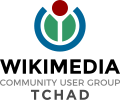WikiFranca
| Home | Organization | Actualités | Formation | Grants | Communication | Contact |
|---|
Who we are
WikiFranca is the Wikimedian association that brings together various French-speaking groups, both formal and informal, of the Wikimedia Movement.
WikiFranca currently brings together 25 member groups from 3 continents.
Its aim is to encourage activities in French on the various Wikimedia Projects, both online and in the field, and to promote collaboration and cooperation between French-speaking Wikimedians around the world, by offering support for their activities or organizing collaborative international projects.
Finally, WikiFranca aims to be a strong voice for the French-speaking community within the Movement and with the Foundation. To this end, WikiFranca aims to become a true French-speaking Hub within the Wikimedia Movement.
Our Objectives
- act as a relay for French-speaking voices within the Movement and with the Wikimedia Foundation
- to provide an exchange hub for strengthening the skills and competencies of our members through cooperation between the various French-speaking groups in the Wikimedia Movement
- distribute in French information and news about the Movement to French-speaking groups
Background
The idea of an international francophone collaboration and the formation of a true francophone hub within the Wikimedia Movement was born in 2011. In the course of French-speaking Wikimedia meetings, its first projects were launched (international month of the French-speaking contribution, French-speaking WikiConvention…) and its structure gradually developed. In 2023, WikiFranca officially became an association under Swiss law.
Gallery
-
Photo from the French-speaking Wikiconvention 2023.
-
Group photo of the 2022 Wikiconvention.
-
Photo of the group of participants in the French WikiConvention of Brussels 2019.
-
Photo of the group of participants in the French WikiConvention of Grenoble 2018.
-
African Schools Challenge WikiChallenge Ceremony in Mali, 2018.
-
Contribution workshop in Douala, Cameroon, 2018.
-
Contributory Day Germain Muller at the Strasbourg Museums Library, 2013.
-
Francophone Contribution Month in Oran, Algeria.
-
#1Lib1ref in Abidjan, Ivory Coast, 2018.
-
Edit-a-thon social entrepreneurship at ESCP Europe, 2016.
-
Digital Summer School in Haiti.
Updates
2024
- November 2-3: Wikiconvention francophone in Quebec City (Quebec, Canada)
- juillet : sept nouveaux membres rejoignent WikiFranca
- June 7: Wikicauserie #3
- April 25: general meeting
- April 13: results of the WikiFranca survey at the francophone Admin Conf
- March 22: WikiCauserie #2
- March : International Francophone Contribution Month
2023
- December 15: first edition of the WikiCauserie
- November 23: annual general meeting
- September 20-23: WikiConvention francophone in Abidjan (Côte d'Ivoire)
- August 18: WikiFranca meeting at Wikimania (Singapore)
- April 13: extraordinary general meeting
- March : International Francophone Contribution Month































